
The idea that the current tensions in the East Med are due to “decades-old” disputes isn’t entirely right. I am not sure people appreciate how much the Turkey-Libya delimitation created new realities and claims. Let's look at some maps.
My go-to source is always @CErciyes—his slides are excellent and make clear the Turkish position (I’ve added some links at the end of this thread). There is also a certain rhythm to his presentations, which makes them easier to compare over time.
Here is a map from May 2019, before the Turkey-Libya delimitation, showing Turkey’s claimed Continental Shelf. It uses the Turkey-Egypt midpoint and assumes that Kastellorizo has no or reduced effect. It reaches the 28º meridian, and then the firm line becomes a dotted line. 
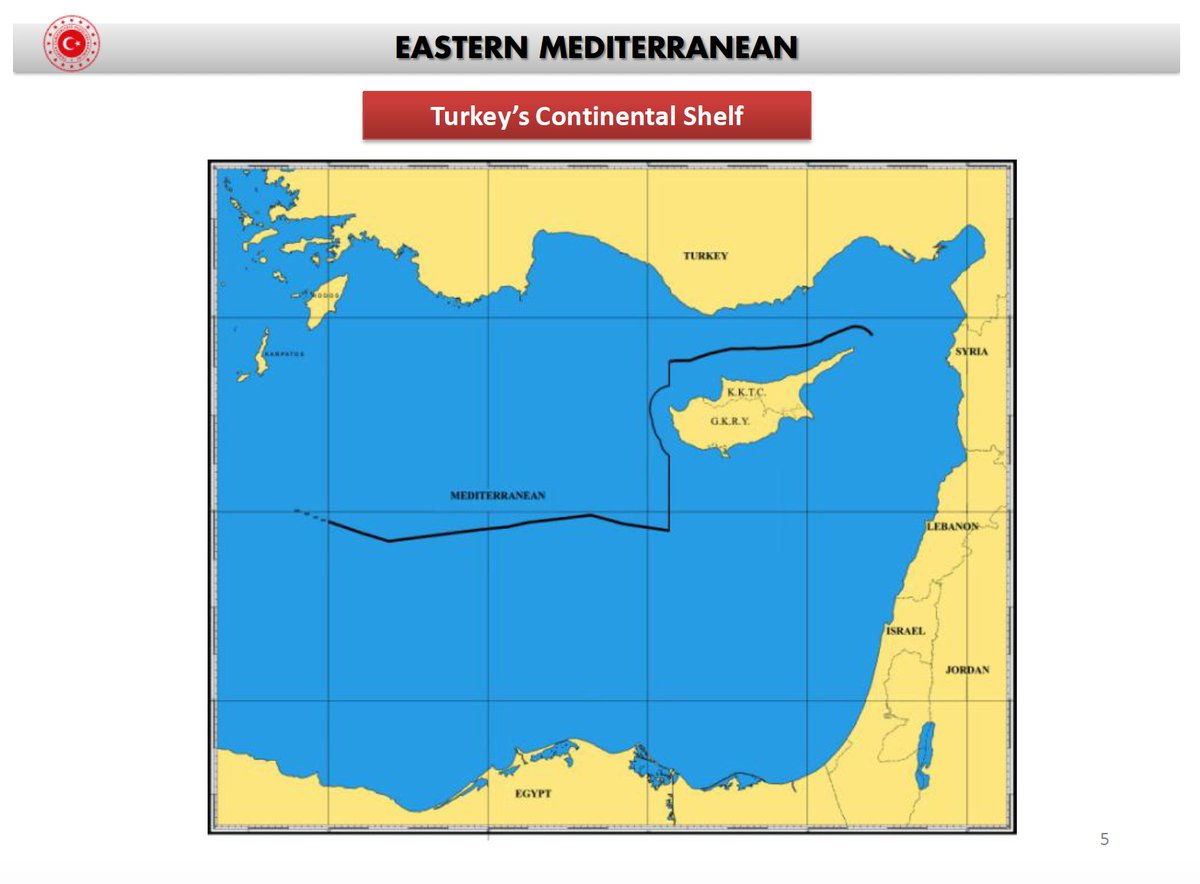
Another map from the same deck. That big red box next to the 28º meridian reads “Outer limits of the Turkish Continental Shelf.” West of that point, the presentation says, parties should negotiate “taking into account all prevailing parameters and special circumstances.” 
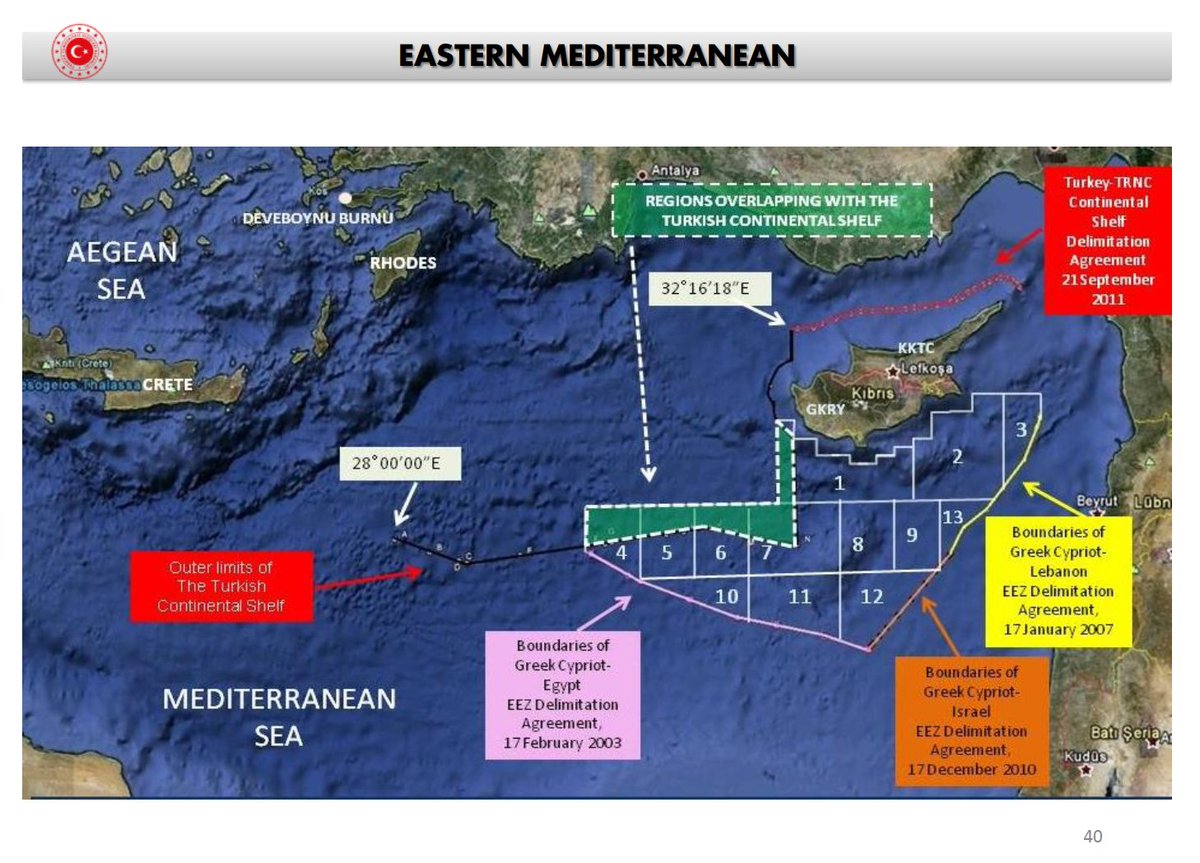
The blocks issued to TPAO (the dark red)—those follow the same line more or less. Notice that once we move north and approach Rhodes the blocks get truncated—possibly this is Turkey recognizing the difference in influence between Kastellorizo and a bigger island like Rhodes. 
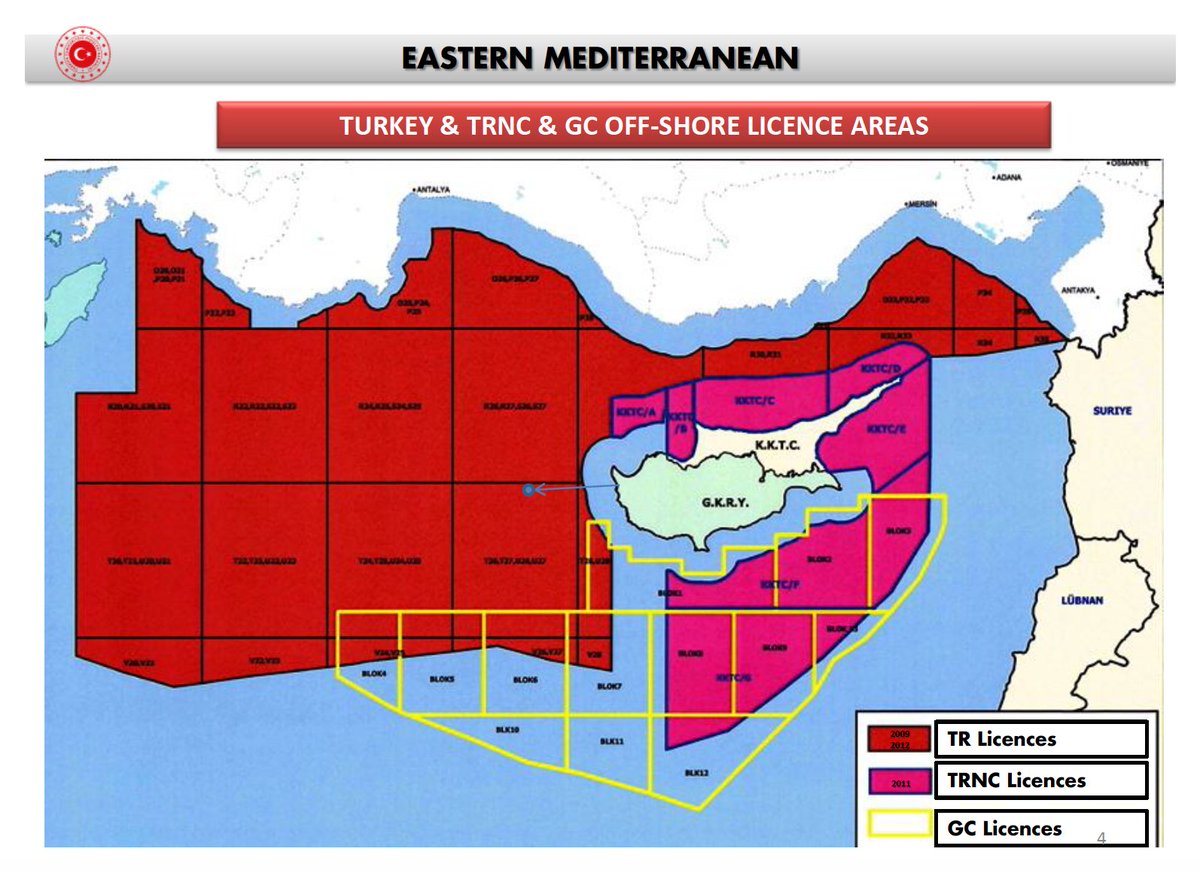
Enter the Turkey-Libya delimitation. We now have a new map—this is February 2020. What used to be a dotted line beyond the 28º meridian is now a firm and longer line. The points F-E are the delimitation (D is the 28º meridian). 
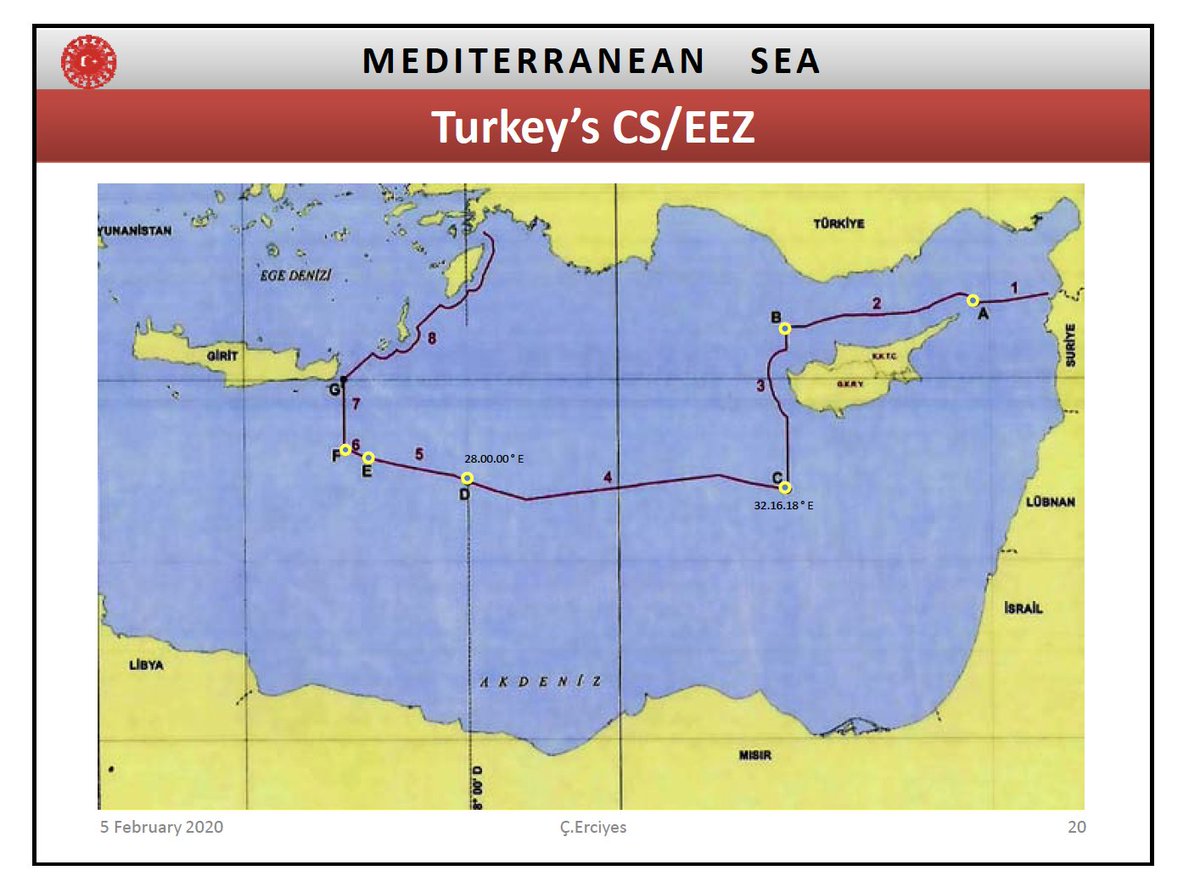
The new “Outer limits of Turkey’s Continental Shelf,” the red line, is nothing like the old line. Notice how close “G” is to Crete and how far it is from mainland Turkey. The space around Rhodes? Gone. This is a new map. 
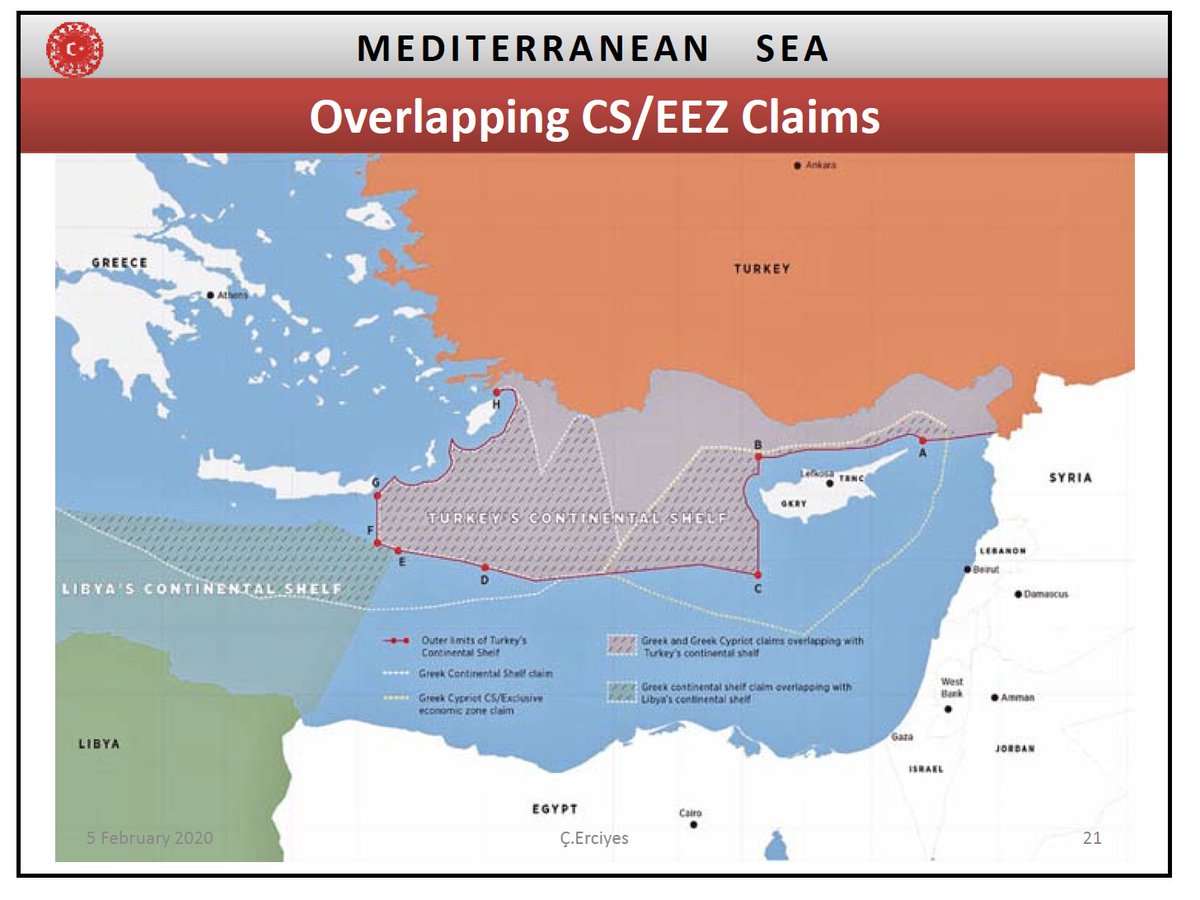
(By the way, this map is the basis for reading the Greek-Egypt delimitation, which extends to the 28º meridian —what used to be the outer edges of Turkey’s claim for a continental shelf. 
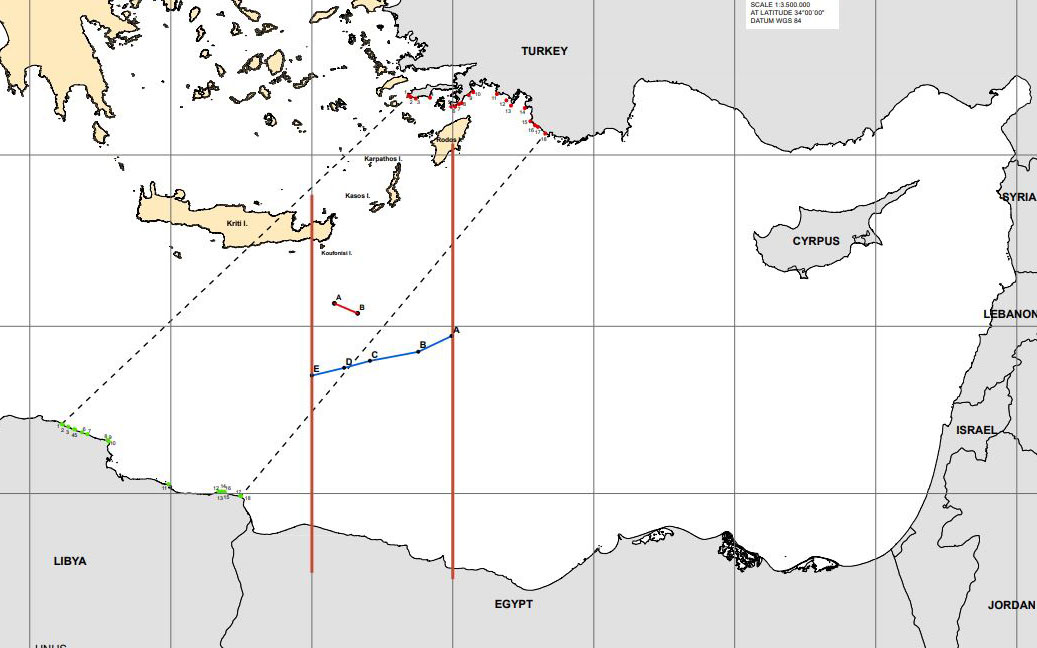
Most of the action this summer is still east of the 28º meridian (here is a map on the movements of the Oruc Reis from @Kathimerini_gr); this still mostly presses the Turkish position over the influence of Kastellorizo. 
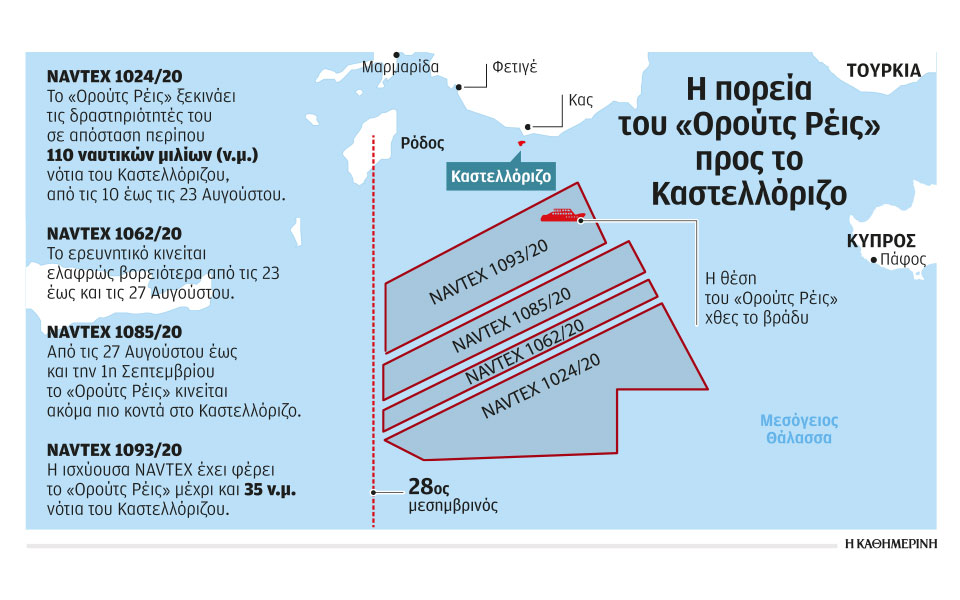
But the context has changed: what used to be a dispute about a small island (Kastellorizo) next to the Turkish mainland is now a dispute about much bigger islands (e.g. Crete and Rhodes), and areas far away from the Turkish mainland.
So yes, the current quarrel feeds on old disputes, and some of those go back in time. But the essence of the dispute changed in a fundamental way over the past year—and that’s important to understand (fin).
Appendix:
May 2019 presentation: mfa.gov.tr/site_media/htm…
September 2019 presentation: mfa.gov.tr/site_media/htm…
February 2020 presentation: mfa.gov.tr/site_media/htm…
May 2019 presentation: mfa.gov.tr/site_media/htm…
September 2019 presentation: mfa.gov.tr/site_media/htm…
February 2020 presentation: mfa.gov.tr/site_media/htm…
• • •
Missing some Tweet in this thread? You can try to
force a refresh


